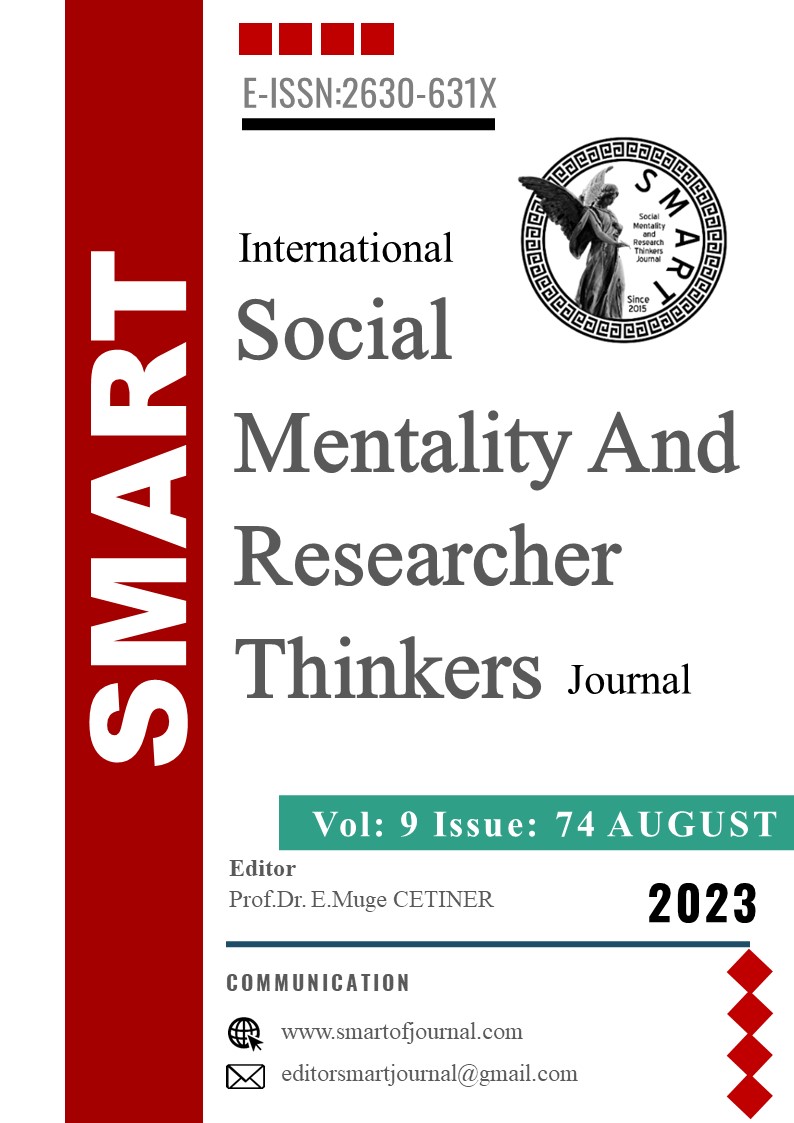Pandemi Döneminde Matematik Öğretmenlerinin Uzaktan Eğitim Sürecinde Hizmet İçi Eğitim Gereksinimlerinin İncelenmesi
Author :
Abstract
Pandemi dönemi, ülkemizde ve tüm dünyada öğretmenlerin deneyimledikleri yeni bir durum olduğundan dolayı bu sürece uyum sağlamak için yeni gereksinimleri ortaya çıkarmıştır. Bu çalışmanın amacı 2020 Mart ayında ortaya çıkan covid-19 pandemisi dolayısıyla derslerini uzaktan vermek durumunda kalan matematik öğretmenlerinin uzaktan eğitim sürecinde hangi alanlarda hizmet içi eğitime gereksinim duyduklarını incelemektir. Araştırmada hem nicel hem de nitel veri toplama tekniklerinin kullanıldığı karma yöntem modeli seçilmiştir. Araştırma kapsamında nicel veriler anket yoluyla 49 katılımcıdan, nitel veriler ise yazılı görüşme formu aracılığıyla 12 katılımcıdan toplanmıştır. Verilerin analizi nicel boyutta frekans ve yüzde hesaplamaları, nitel boyutta ise betimsel ve içerik analizi yoluyla gerçekleştirilmiştir. Çalışma sonuçları, matematik öğretmenlerinin mesleki kıdem yılları değiştikçe, uzaktan eğitim sürecinde ihtiyaç duydukları hizmet içi eğitim konularının da farklılık gösterdiği belirlenmiştir. Mesleki kıdem yılı fazla olan öğretmenlerin teknolojiye yönelik araç ve gereçlerin kullanımı başta olmak üzere daha fazla hizmet içi eğitim konularına gereksinim duydukları, göreve yeni başlayan öğretmenlerin ise bu alanda daha az hizmet içi eğitim konularına gereksinim duydukları belirlenmiştir. Bu çerçevede nicel ve nitel veri sonuçları birbirini destekler niteliktedir.
Keywords
Abstract
Since the pandemic period is a new situation experienced by teachers in our country and all over the world, new requirements have emerged to adapt to this process. The purpose of this study was to examine the in-service training needs of mathematics teachers regarding distance education during the pandemic that emerged in March 2020. The mixed method model in which both quantitative and qualitative data collection techniques were used in the study. Within the scope of the research, quantitative data were collected from 49 participants through a questionnaire, and qualitative data were collected from 12 participants through a written interview form. The analysis of the data was carried out by frequency and percentage calculations in the quantitative dimension and by descriptive and content analysis in the qualitative dimension. The results of the study showed that as the professional seniority years of mathematics teacher’s change, the in-service training subjects they need in the distance education process also differ. It has been determined that teachers with more years of professional seniority need more in-service training subjects, especially the use of technology-oriented tools and equipment, and new teachers need less in-service training in this field. In this framework, quantitative and qualitative data results support each other.





